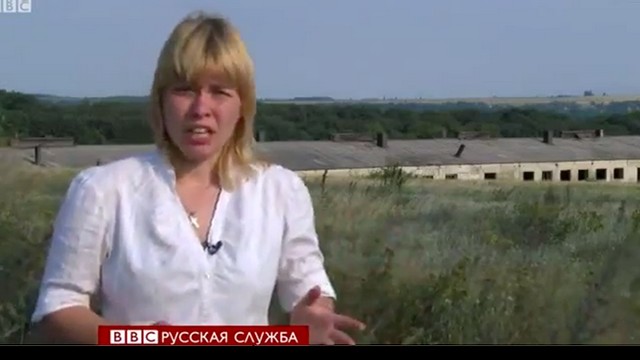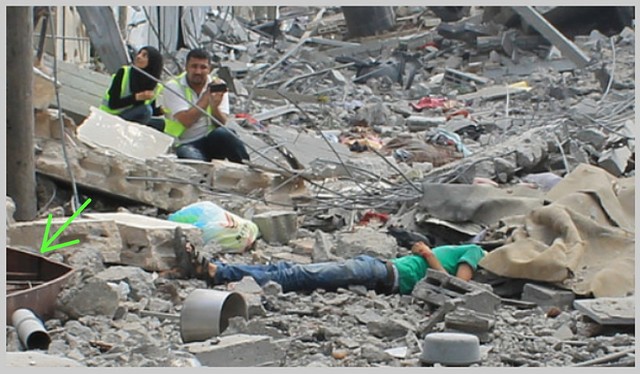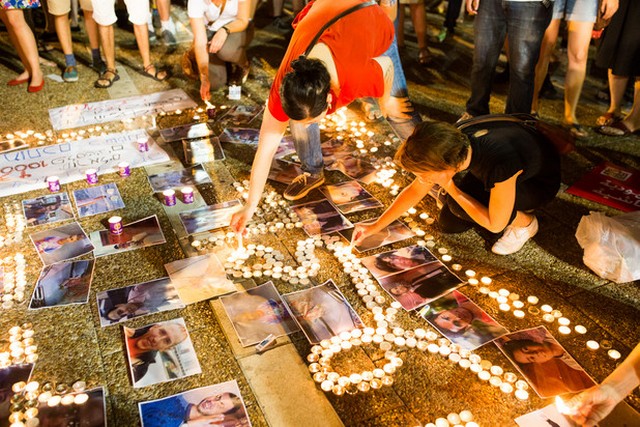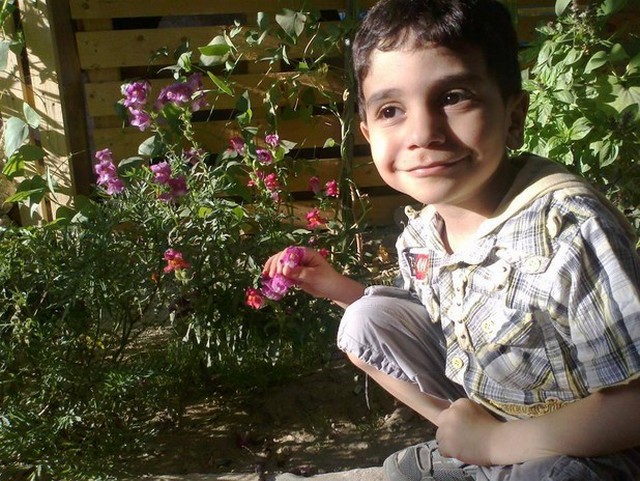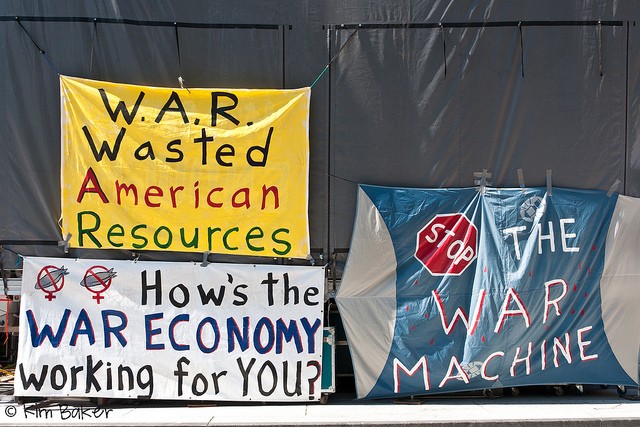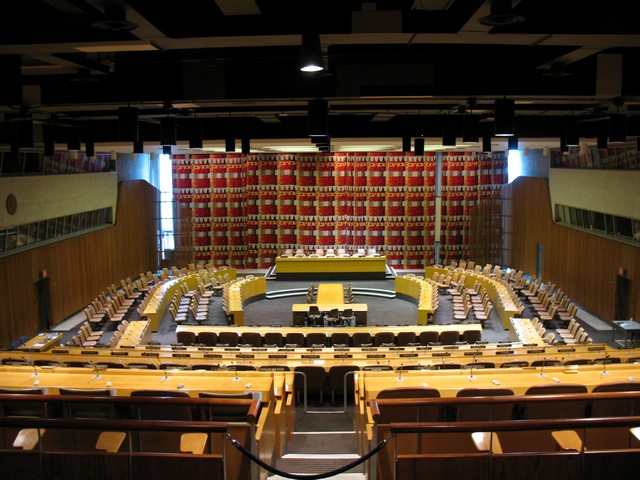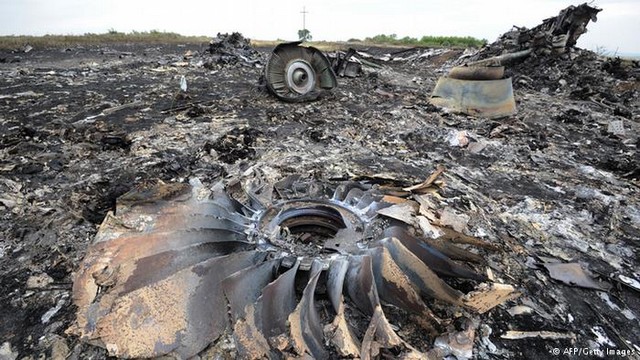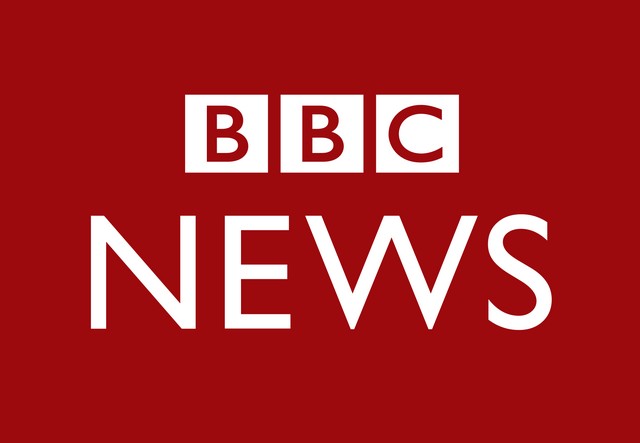By Dennis Small
July 22—In mid-July, as the planet was being wracked by growing war horrors in eastern Ukraine, Iraq, and Gaza, and by economic depression caused by the death throes of the trans-Atlantic financial system, heads of state representing half of humanity gathered in Brazil and took the first steps toward creating a New World Economic Order.
The leaders of the BRICS nations (Brazil, Russia, India, China, and South Africa), met on July 16 in Fortaleza for the VI BRICS Summit, and the next day they were joined by the heads of state of South America in the capital city Brasilia. The BRICS account for 43% of the world’s population and 27% of the planet’s land area; when Ibero-America is added in, they jointly represent 48% of the human race, and one third of the Earth’s land area (Figure 1).
At the summit and its numerous associated bilateral and multilateral meetings, that half of humanity adopted a project that is premised on rejecting the current casino financial system, and replacing it with one providing credit for high-technology development projects; on educating and training youth to meet the growth challenges of the future; on full respect for national sovereignty, banishing the imperial policy of regime change and wars; and on explicit promotion of the common good among nations—the Westphalian principle.
“History tells us the law of the jungle isn’t the way of human coexistence,” Chinese President Xi Jinping stated on July 16.
“Every nation should obey the principle of equality, mutual trust, learning from each other, cooperating and seeking joint benefits … for the construction of a harmonious world, sustained peace, and joint prosperity.”
The British Queen was not pleased by these developments, seeing in them an existential threat to the Empire. Lyndon LaRouche was pleased—for the same reason. For 40 years, the renowned American statesman has devised programs, and organized for them internationally, of global financial reform and great development projects—most recently his “Four New Laws To Save the U.S.A. Now!”—of precisely the sort that have now been placed on the agenda by the BRICS.
“The BRICS and allies are building a world system based on real value, not phony paper value,” LaRouche stated July 18.
“They are deciding what real value is, and they are imposing it, which is the cost of the productive powers of labor in a changing situation.”
The underlying problem that we have to deal with today, LaRouche elaborated, is the “asymmetry of value in the world,” which is coming from two distinct systems that are operating with a different logic and different metrics: They are totally incompatible.
The first system is the trans-Atlantic system. “These bastards,” LaRouche stated, “who hold pieces of paper that they say are worth quadrillions, and they’re prepared to kill for that,” as the case of Argentina’s battle against the vulture funds shows, as does the pro-vulture ruling of the Aristotelian idiot otherwise known as Justice Antonin Scalia of the U.S. Supreme Court. What these people are holding, this paper, LaRouche added, is absolutely worthless. “It’s like taking rags out of a bucket and trying to sell them”; or even worse, it’s just the promise of future delivery of derivatives on those rags, that they’re saying actually has value.
This is the dead hand of the past, trying to stop humanity from creating any future for itself.
On the other side, we have an emerging system, incompatible with the first, which is building a market based on real value. And real value, LaRouche elaborated, comes from, and is measured by, the development of the productive powers of labor—that is, through the introduction of scientifically created new technologies, implementing productive processes which increase the energy-flux density through the physical economy in such fashion as to immensely increase the productive powers of labor. That new system will create a process whereby the increase in energy-flux density will itself increase at an accelerating rate.
This role of technological progress and scientific advance, LaRouche specified, is what the human species uniquely does. Such creativity is actually the source of value in an economy, and it is the way in which our action to create the future defines present value. It is the central concept of the American System of Political Economy, on which the United States was founded.
The decisive strategic question today, LaRouche concluded, is whether the United States will join that emerging New World Economic Order, or will remain joined at the hip to the British Empire—as it is under the impeachable President Barack Obama—and bring destruction down upon itself and the rest of the world. The same existential issue faces Europe.
Building a Nuclear Future
The BRICS Summit issued a 72-point Fortaleza Declaration (see below), which announced the formation of a New Development Bank (NDB), initially capitalized at $50 billion, to fund infrastructure projects in BRICS and other countries; as well as a Contingent Reserve Arrangement (CRA) with $100 billion to help nations deal with capital flight and other forms of financial warfare.
Most international commentators have engaged in endless contortions, dissecting sentences from the Fortaleza Declaration and speeches at the summit, to try to determine whether these new BRICS institutions are meant to merely complement the British Empire’s International Monetary Fund and other institutions, or to replace them with a new financial architecture. But the answer to that question lies not in parsing written or spoken words, but in the intent behind the creation of the new institutions, which is best reflected in two fundamental issues which were pervasive throughout the discussions: the future and youth, and nuclear energy.
Indian Prime Minister Narendra Modi was most eloquent on the first of these, emphasizing to the plenary session of the Summit “the uniqueness of BRICS as an international institution. For the first time, it brings together a group of nations on the parameter of ‘future potential,’ rather than existing prosperity or shared identities. The very idea of BRICS is thus forward-looking.” He urged the BRICS to now go beyond “being summit-centric,” proposing that the youth of the BRICS nations should take a lead in expanding people-to-people contact between their nations. He suggested establishing a BRICS Young Scientists’ Forum, setting up BRICS language schools “to offer language training in each of our languages,” and exploring the creation of a BRICS University.
Modi concluded:
“Excellencies, we have an opportunity to define the future—of not just our countries, but the world at large…. I take this as a great responsibility.”
Russian President Vladimir Putin struck a similar note in comments to the press on July 17, evaluating the results of his trip:
“The BRICS are all young states, and the future belongs to the young.”
As for the issue of nuclear energy, discussion of it and conclusion of numerous concrete deals permeated the summit and related bilateral meetings, especially those of Russia’s Putin with Argentina’s Cristina Fernández de Kirchner and Brazil’s Dilma Rousseff. This, despite the fact that the Fortaleza Declaration itself—in many ways a “consensus document” typical of such international gatherings—does not mention the matter, other than to defend Iran’s right to develop peaceful nuclear energy.
The true measure of value in an economy, LaRouche has emphasized, is the impact of science and technology in continually increasing the energy-flux density of the productive processes. Although the required science-driver for the world economy is the development of thermonuclear fusion energy, the current insistence on nuclear fission among the BRICS and allied countries is highly significant, as it reflects a commitment to raising the economy’s overall energy-flux density.
Far better than any monetary or GDP-based measure, energy-flux density and other physical economic parameters best indicate the BRICS’ direction.
Figure 2 shows nuclear energy as a percentage of total electricity generation—which is an indicator of overall energy-flux density—in a number of BRICS countries (Russia, India, and Brazil), as compared to representative European countries (Germany and Spain), looking at both current and projected levels. In the case of Germany, for example, the British Empire’s criminal green policy of de-nuclearization has already led to a drastic collapse of nuclear from 28% of total electricity in 1990, to 15% today. The German government of Angela Merkel has adopted a policy of reducing that to zero by the year 2020! Spain is almost as bad.
Compare that to what Russia has done, increasing its proportion of nuclear from 11% in 1990 to 18% in 2013, with a policy of raising that proportion to some 27% by 2030. Other BRICS countries have smaller proportions of nuclear to total electricity today, but they are defiantly committed to a nuclear future. Brazil, for example, plans to increase nuclear from 3% to 15% by 2030. As President Rousseff stated just before the summit began: “Our countries are among the largest in the world, and they cannot be content, in the midst of the 21st Century, with any kind of dependency. Recent events demonstrate that it is essential that we seek for ourselves our scientific and technological autonomy.”
South Africa has also just announced that it is resuming its nuclear program, with plans to build six new nuclear plants (see article in this section).
It is of note that China has the largest nuclear construction program in the world today—a distinction which in the 1970s went to the Roosevelt-created Tennessee Valley Authority. In fact, of the 66 nuclear plants currently under construction worldwide, 50 of them are in the BRICS countries. In other words, 43% of the world’s population is constructing 75% of the world nuclear plants; or, the rate of nuclear construction is 4.3 times greater per capita in the BRICS than in the rest of the world.
The reality is, of course, much starker than those simple numbers indicate, because nuclear energy is being actively destroyed in much of the trans-Atlantic sector (and Japan), as a direct result of the British Empire’s suicidal green policies. The BRICS and allies have made it clear that will have none of it: They have taken the British Queen’s green agenda, as reflected in the Copenhagen Resolution, and thrown it in the trash can.
LaRouche put a fine point on it:
“What about Frau Merkel of Germany?” he asked July 18. She represents the worthless view of value; she’s tearing down nuclear energy, destroying her economy and making it absolutely worthless, he said. “What’s the value of her opinions? Not much.” The BRICS and Ibero-America are building a world market based on real value, and they are already far more productive than Europe and the United States, which insist on values being set by some crazy judge—Scalia in the Argentine case.
Great Infrastructure Projects
Also reflective of the BRICS’ focus on real value, was the emphasis placed on creating a credit system to fund major infrastructure investment. Two important such projects moved forward in and around the BRICS Summit.
The first was the idea of fulfilling the centuries-old dream of building a transcontinental railroad to connect the Atlantic and Pacific coasts of South America (Figure 3). This took shape in the discussion between Chinese President Xi and Peruvian President Ollanta Humala, and then with Brazil’s President Rousseff. An agreement was reached to open bidding for foreign, including Chinese, companies, to participate in the construction of one critical segment of that project: the “T”-shaped Palmas-Campinorte-Annapolis/Campinorte-Lucas route in central Brazil.
The importance of that segment within the overall project is clear from Figure 4, a schematic map first published by EIR back in 1988. The northern terminus of Palmas is a stone’s throw from the famous Carajás project in the middle of the Amazon jungle, the world’s largest (and purest) iron ore deposit, which is now connected by rail only to the Atlantic port of São Luis. Once built, the western rail terminus of Lucas would then be halfway to the Brazil-Peru border, where the projected rail line would link up with a Peruvian branch that would cross the Andes at Saramirisa—the lowest pass in that giant mountain range—and from there, to one or more Peruvian ports for shipment across the Pacific Ocean. This would drastically cut shipping time and costs from Brazil (and other Southern Cone countries like Argentina) to Eurasian powerhouses like China, India, and Russia.
Even greater efficiencies and growth and productivity can be achieved as this South American Transcontinental Railroad is able to connect directly by rail with Asia, as high-speed maglev rail lines are constructed and opened up through the Darién Gap and the Bering Strait (Figure 3).
There are various possible routes for a South American Transcontinental Railroad. (The one under discussion among China, Brazil, and Peru centers on São Paulo-Santa Fé do Sul-Cuiabá-Porto Velho-Pucallpa-Saramirisa-Bogotá-Panamá. Another viable option is São Paulo-Santa Fé do Sul-Santa Cruz-Desaguadero-Saramirisa-Bogotá-Panamá, which has long been studied.) In fact, earlier versions of precisely this project were drawn up by the Intercontinental Railway Commission, started by U.S. Secretary of State James Blaine, which employed U.S. Army engineers to survey and project lines tying the United States through to Argentina and Brazil, presenting a completed map of the intended route project to President William McKinley in 1898 (Figure 5). The strongly pro-American System McKinley commemorated Blaine’s plans as the future of humanity, speaking in 1901 at the Pan-American exposition in Buffalo—where McKinley was shot dead in a British-run operation.
Another great project, the construction of an Interoceanic Canal through Nicaragua (Figure 6), was announced on July 9 by Nicaraguan President Daniel Ortega. The massive project will be carried out by the Chinese company HKND, but President Putin also made an unannounced stopover in Nicaragua on July 12, on his way to the BRICS Summit, to offer Russia’s support. The canal will run 173 miles from the mouth of the Brito River on the Pacific Coast in southeastern Nicaragua, to the mouth of the Punta Gorda River on the Caribbean side. It will include two locks, and 65 miles of it will pass through Lake Nicaragua, and have a projected passage time of 30 hours, coast to coast, for the 5,100 of the largest ships in the world that will be able to use this canal.
Project engineers report that over 50,000 construction workers will be required, and that once in operation it will generate 200,000 jobs, including its sub-projects (airport, two ports, tourist center, etc.).
President Ortega, in announcing the selected route, stated that the country’s entire educational system was being revamped to produce the engineers and skilled workers that the project will require, He also held up a book containing the feasibility studies for constructing such a canal produced by the United States government and adopted by the U.S. Congress 118 years ago, in 1896, detailing the benefits such a canal would bring.
The irony was lost on no one. China is actively involved in massive job-creating economic projects in Central America—the United States’ proverbial “back yard”—while the U.S. under Obama has helped destroy that area with his policy of drug legalization, on top of decades of the British Empire’s free-trade economic devastation. Today, one-third of the population of El Salvador has been forced to emigrate to the U.S., in a desperate search for the means of survival; while official unemployment in neighboring Honduras now surpasses 60%.
The broader commitment to infrastructure development was emphasized in the last of the multiple historic summits which took place in Brasilia in mid-July, that of the heads of state and special representatives of the Community of Latin American and Caribbean States (CELAC), who met with Chinese President Xi and the Unasur heads of state on July 17. Their joint declaration (see below) emphasized the “important opportunity for mutual development” which exists, announcing
“the establishment of a broad partnership of equality, mutual benefit, and common development between China and Latin America and the Caribbean.”
The New Development Bank
There is little question that the New Development Bank (NDB) and Contingent Reserve Agreement (CRA) are the seed crystals of an entirely new, international financial architecture—although a major political battle lies ahead in order to force this policy through, over the violent objections of the City of London and Wall Street, including their agents within some of the BRICS countries. The founding document of the NDB cautiously sticks to the idea that the NDB and CRA are only meant to “complement” existing institutions like the IMF; but the principles on which they were founded not only contradict those of the IMF, but mutually exclusive.
Most significant, the NDB is clearly geared to lend money for real development, without the hated austerity conditionalities and green policies associated with the IMF and World Bank. For example, the CELAC-China joint declaration contains a radical departure from IMF/World Bank conditionalities, calling “to make good use of the concessionary loans granted by China, in accord with the necessities and priorities of the recipient countries…. We stress the importance of building and modernizing infrastructure.”
Argentine President Fernández, who was given featured billing (after host Rousseff) at the BRICS-Unasur Summit, issued the clearest call for a new world financial order: “We, sirs, are posing then, a new global financial order, one that is not just fair and equitable, but indispensable…. What we demand from the world, is precisely the creation of a new global financial order which will permit sustainable and global economic growth…. Thus, the appeal to all nations is to join forces in this real crusade for a new global political, economic and financial organization that will have positive social, political, economic, and cultural consequences for our nations.”
President Putin—who, like Argentina’s Fernández, is no stranger to being the target of economic warfare—presented a complementary proposal: “BRICS nations should cooperate more closely in commodities markets. We have a unique resource base: Our nations hold 30-50% of global reserves of various resources. Therefore, we believe it is imperative to develop cooperation in mining and processing, and organize a center for training experts in the metals industries in BRICS nations.”
Such an agreement would break the British Empire’s stranglehold on world commodities, and their ability to speculate with nations’ livelihood and their very existence.
To be viable for these purposes, the NDB and CRA would have to function with a firewall against the cancerous dollar-denominated system. It is noteworthy that the NDB is authorized to both receive additional capitalization in non-dollar currencies in the future, as well as to issue loans to BRICS and other nations in non-dollar currencies.
Once three, four, or more countries are involved in great projects receiving such non-dollar loans, a new currency will have in effect been created, in which fixed exchange rates among the national participants will also follow. That step alone would instantly bring about a return to the pre-1971 Bretton Woods system of fixed (predictable) exchange rates, wiping out, with the stroke of a pen, trillions of dollars of speculation on currency futures.
But for the NDB to be able to truly take on the tasks of global reconstruction, the United States must become a full partner in its capitalization and functioning as the centerpiece of a global Hamiltonian credit system, of the sort specified in LaRouche’s Four Laws. Today’s “dollar,” which is no longer the sovereign currency of the United States, but rather a supra-national betting instrument under the control of the British Empire, must also return to its proper role as the Treasury-issued “greenback.”
In short, the central strategic question posed by the mid-July BRICS Summit, is: When will the United States rid itself of President Obama, and return to the American System policies it was founded on, and which half of humanity, led by the BRICS, is now implementing?
Narendra Modi http://www.larouchepub.com/eiw/public/2014/2014_20-29/2014-29/pdf/14_4129.pdf
Vladimir Putin http://www.larouchepub.com/eiw/public/2014/2014_20-29/2014-29/pdf/15-16_4129.pdf
Xi Jinping http://www.larouchepub.com/eiw/public/2014/2014_20-29/2014-29/pdf/17_4129.pdf
Cristina Fernandez http://www.larouchepub.com/eiw/public/2014/2014_20-29/2014-29/pdf/18_4129.pdf
LaRouche’s record http://www.larouchepub.com/eiw/public/2014/2014_20-29/2014-29/pdf/19-21_4129.pdf

